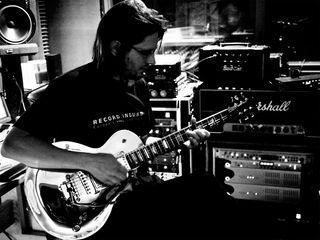
Steven Wilson: my top 5 not-so-guilty pleasures of all time
You might think that Steven Wilson, guitarist and frontman of the progressive-rock masters Porcupine Tree, and creator of dramatically challenging music in his solo career, would have a record collection that begins with King Crimson and ends with Pink Floyd.
And you'd be very wrong. Look closer at Wilson's extracurricular activities, and you'll see work that encompass everything from krautrock (IEM) to ambient music (Bass Communion) to death metal (production work for Opeth) – and that's just for starters. "My musical tastes are very diverse," he says. "I just never felt like listening to certain kinds of bands. There's too much great stuff out there."
Near and dear to Wilson's heart is straight-ahead radio pop. On a series of two-song CD releases called Cover Versions, he's paid homage to the likes of ABBA and Prince, among others, and his reverence to the pop form is unshakable to this day.
“There’s not a lot of rock fans that will take you seriously if you talk about these artists," he says. "But I love these bands and their records so much, and I have no guilt whatsoever about it. I’ve never been one of those people who say, ‘Oh, well, if you play this kind of music, you can only like these kinds of bands.' So many things influence me in one way or another. Some might be surprising, but that's OK."
On the following pages, Steven Wilson runs down his top 5 not-so-guilty pleasures. And speaking of pleasures, on 25 September Wilson releases the concert film Get All You Deserve on DVD and Blu-ray. You can read all about it right here.
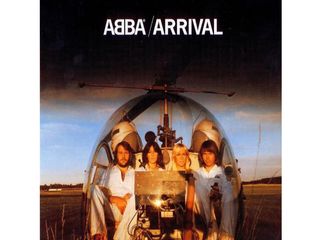
ABBA - Arrival (1976)
“I love ABBA, and I would say that the album Arrival is probably their masterpiece. For me, I’ve always said that if you want to understand anything about writing great pop music, you should listen to The Beatles, The Beach Boys and ABBA.
“In the mid- to late ‘70s, there was no one better than ABBA at writing and producing great pop. Arrival has so many of the band’s best songs: Dancing Queen, Money Money Money, Knowing Me, Knowing You – those are the classics, but the whole album is filled with incredible songs. There’s no filler. They weren’t just a singles band, they were an amazing albums band.
“Yes, they had a slightly cheesy image, but then most people did in the ‘70s. But ABBA were absolute masters of their craft. Benny and Bjorn wrote some of the genius songs of the times.
“A lot of people, when you say, ‘I love ABBA,’ they snigger wryly, as if you’re being post-modern and ironic. But I’m not. I hold ABBA up there with Led Zeppelin and Pink Floyd.”
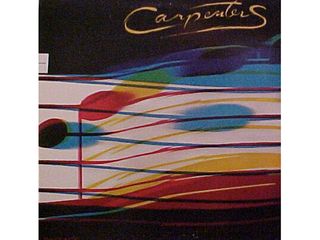
The Carpenters - Passage (1977)
“I adore The Carpenters. You listen to them and you just think, ‘How beautiful.’ The writing and production are incredible, and then there’s Karen Carpenter’s voice – one of the greatest musical instruments we’ve ever, ever heard on this planet.
“Richard Carpenter’s production and arrangements are extraordinary. The choice of songs – and some of the songs they wrote themselves, like Yesterday Once More – just great.
“There’s a track I really like, which is a cover version of a song called Calling Occupants Of Interplanetary Craft [by Klaatu]. It wasn’t a hit in its original form, but Richard took it and turned it into a mini-pop symphony. Amazing! Just one of the best pop-rock productions ever.”
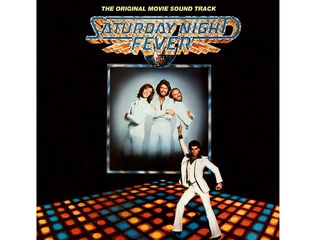
Saturday Night Fever: The Original Movie Sound Track (1977)
“The late ‘60s albums by the Bee Gees are extraordinary. I think a lot of people admire those records, but I go right to the late ‘70s. I still say that the music they created for the disco floor on Saturday Night Fever are some of the greatest pop productions of all time.
“Stayin’ Alive, Night Fever, How Deep Is Your Love? – those great classics from that era, to me, stand up as well as they ever did, if not better. Production, writing, performance – it’s all right there.
“My mother used to listen to a lot of the disco music from the mid- to late ‘70s. I love that whole kind of genre, the scene, the great Giorgio Moroder/Donna Summer records, and some of the other European people making disco records. I really do love the whole sound of original disco.
“The Bee Gees in general, for me, are very underrated and sort of sneered at by lots of rock fans and the rock media. How Deep Is Your Love? is one of the most amazingly beautiful songs of all time. The Bee Gees were a factory of tremendous songwriting. What a catalogue! And not just the songs they sang themselves; they would write songs for other people, and they would be number one, multi-platinum hits. Incredible.”
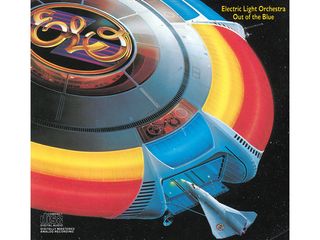
Electric Light Orchestra - Out Of The Blue (1977)
“People might not be as snobbish about this band as some of the others, but I think there’s a little prejudice against them. Jeff Lynne’s songwriting and production – what I particularly love is how he would sit down and say, ‘I’ve got this song. What kind of musical universe can I create for it that will make it completely unique and distinctive from any other song I’ve ever written?’
“This was such a great lesson for me. The Beatles were masters of that, too. It’s like, you’ve got a song, but you don’t just do it the regular way like you’ve done for your other songs. You look for a way to make it stand out from everything else in your catalogue. It’ll still sound like you, but there’s a change, a little bit of a twist.
“Out Of The Blue, the double album from 1977, is like a mini-pop symphony all its own. Every song has its own approach, but it all sounds like Jeff Lynne and ELO. I would put it up there with one of the top 20 or 30 pop records ever made, right alongside The Beatles.”
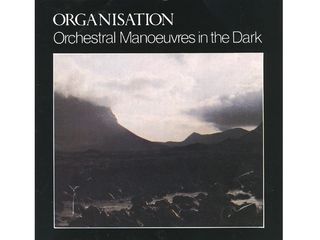
Orchestral Manoeuvres in the Dark - Organisation (1980)
“I do love a lot of ‘80s pop, and I think some of those bands might have gotten a little lost over the years. Orchestral Manoeuvres in the Dark, at the time, were so uncool in England, because they were basically seen to be a watered-down, wannabe Kraftwerk, wannabe Joy Division. Plus, they didn’t look cool. Andy McCluskey and Paul Humphreys sort of looked like your dads. They didn’t have the kind of charisma that Ian Curtis or Robert Smith or Morrissey had.
“But they were two guys who were basically experimenting with electronic music. They were obviously influenced by Kraftwerk and sort of krautrock, but like a lot of people at that time – Gary Numan, who I could have included on my list, and he was considered pretty uncool then, too – they were taking on board this idea of futurism: 'We’re not going to look back. We’re not going to be retro.' It’s a shame in the 21st Century that we don’t have people like that anymore.
“At the time, in the early ‘80s, there was this post-Industrial futurism, and it manifested itself beautiful in bands like Joy Division, of course, but also in bands like OMD, who had a stronger pop sensibility. I think they were as much in love with the idea of being ABBA as they were of being Kraftwerk and Joy Division. They were like a wonderful collision of ideas.
“Their records stand up very, very well as experimental pop records with the most enjoyable kind of songwriting. Organisation is their second album. It’s not their biggest record, but I think it’s probably their best. It’s got that Teutonic, Germanic kind of cold wave thing going on, which I’ve always been a sucker for.”

Joe is a freelance journalist who has, over the past few decades, interviewed hundreds of guitarists for Guitar World, Guitar Player, MusicRadar and Classic Rock. He is also a former editor of Guitar World, contributing writer for Guitar Aficionado and VP of A&R for Island Records. He’s an enthusiastic guitarist, but he’s nowhere near the likes of the people he interviews. Surprisingly, his skills are more suited to the drums. If you need a drummer for your Beatles tribute band, look him up.

"I'm like, I'm freaked out right now. I'm scared. I feel like I'm drowning on stage and I feel like I'm failing”: SZA on that misfiring Glastonbury headline set

“It sounded so amazing that people said to me, ‘I can hear the bass’, which usually they don’t say to me very often”: U2 bassist Adam Clayton contrasts the live audio mix in the Las Vegas Sphere to “these sports buildings that sound terrible”

"I'm like, I'm freaked out right now. I'm scared. I feel like I'm drowning on stage and I feel like I'm failing”: SZA on that misfiring Glastonbury headline set

“It sounded so amazing that people said to me, ‘I can hear the bass’, which usually they don’t say to me very often”: U2 bassist Adam Clayton contrasts the live audio mix in the Las Vegas Sphere to “these sports buildings that sound terrible”
Most Popular







